
Clive Bull 1am - 4am
30 November 2023, 18:57
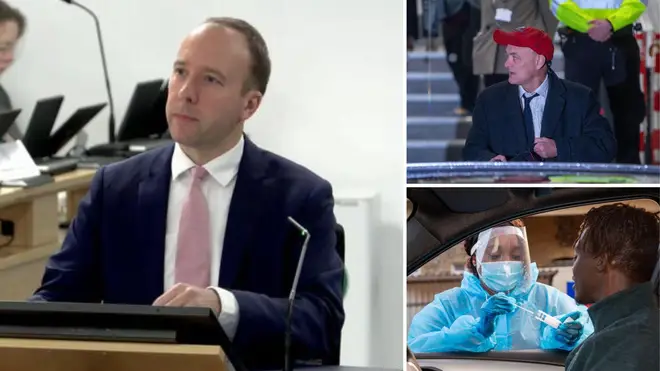
Matt Hancock made a host of damning revelations about the government's response to Covid as he appeared at the inquiry on Thursday.
Mr Hancock, who was Health Secretary until June 2021, said that he was "frustrated" by aspects of Boris Johnson's response to the pandemic, criticised his adviser Dominic Cummings, and said he wished the UK had locked down earlier.
Mr Hancock has been accused of lying by Mr Cummings and others over the course of the inquiry, which he has vehemently denied.
The former Cabinet minister, whose government career ended when he was ousted over a lockdown-busting affair, said the claims against him were "false allegations".
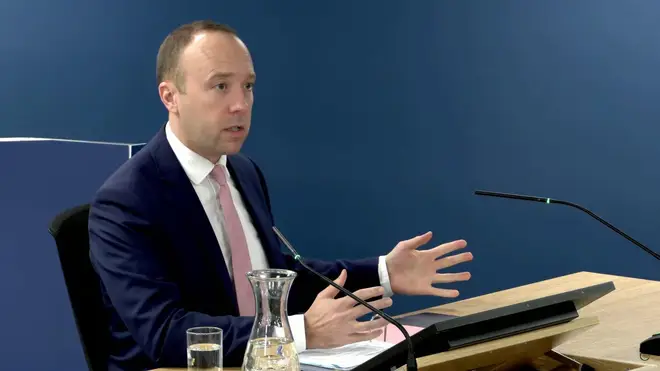
Mr Hancock is no fan of Dominic Cummings, a key adviser to then-Prime Minister Boris Johnson during the pandemic.
The former Health Secretary called Mr Cummings a "malign actor" who fomented a "culture of fear" at Downing Street.
He said Mr Cummings tried to seize "executive authority" from Mr Johnson, and "got in the way" of the response to the pandemic by trying to stage "a power-grab".
Mr Hancock also told the inquiry that his staff were abused by Mr Cummings.
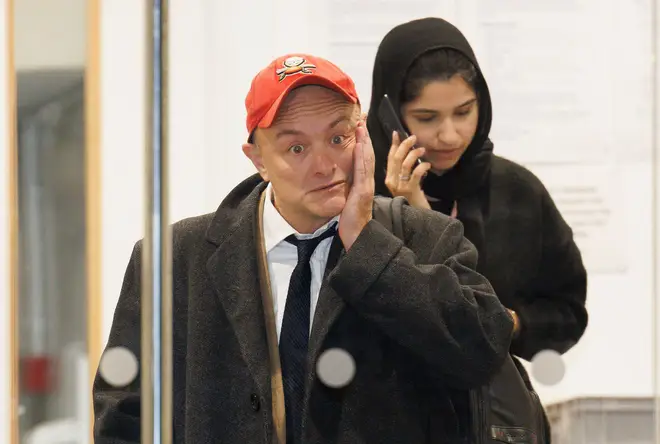
Mr Hancock said that the UK should have gone into Covid lockdown three weeks sooner than it did.
He also said he starting calling for a lockdown in March after speaking with his Italian counterpart Roberto Speranza.
He told the inquiry that February 28 2020 was the "moment that the centre of Government, led by the Prime Minister, really started to come into action".
Mr Hancock added: "With hindsight - Italy having locked down initially, locally in Lombardy on January 21, and then nationally locked down around also February 28 - if at that moment, having seen the Sage assumptions... if that that moment, we'd realised that it was definitely coming and the reasonable worst case scenario was as awful as it was, that is the moment that we should, with hindsight, have acted."
But he added: "At the time, there was still enormous uncertainty, the number of cases was still very low, in fact, there were only 12 cases reported on March 1, and the costs of what I'm proposing were known and huge. So I defend the actions that were taken by the government at the time, knowing what we did, but with hindsight, that's the moment should have done it, three weeks, and it would have been would have saved many, many lives.
"Having obviously thought about this and reflected on this a huge deal over the last few years, the first moment we realistically could have really cracked it was on March 2, three weeks earlier than we did."
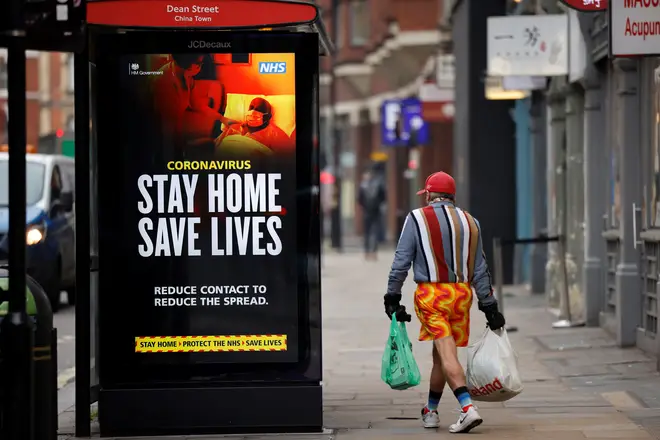
Mr Hancock said that the government should have realised that China failing to contain Covid in mid-February 2020 was a vital moment.
The government's Scientific Advisory Group for Emergencies (Sage) concluded by February 13 that year that China had failed to contain the spread of the disease.
Mr Keith KC put it to him: "That was a seminal moment. In the context of this debate, you were told there's a 50/50 scenario, it's contained or it's not. And if it's not, then subject to sustained community transmission, it's game over.
"Being told formally, the Government machine was informed formally on the 13th of February that China had failed.
"Would you acknowledge that that was a vital moment?"
Mr Hancock replied: "It certainly should have been."
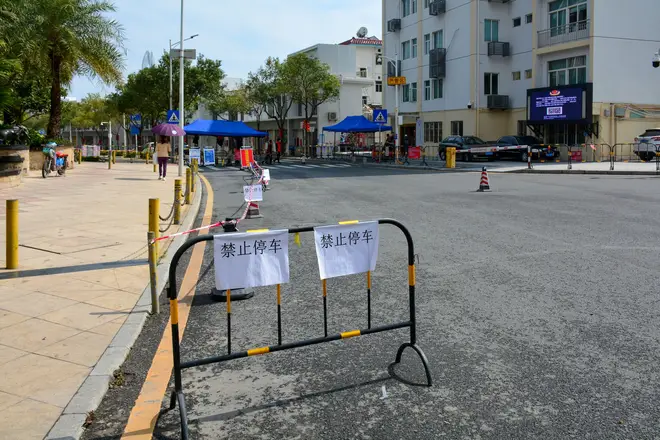
Mr Hancock said that "there were people actively working against" him on plans to ramp up testing from 20,000 tests a day to 100,000 a day, in the month of April 2020.
He said the efforts by "relatively junior people" in Downing Street were "appalling."
He said staff were "trying to go into the testing programme at a level too far down, too low".
This "was deeply unhelpful", Mr Hancock said.
"And following proper lines of accountability would have been much more effective.
"But that's that wasn't quite what I meant, what I meant was the criticism that instead of going for 100,000 tests, there were other things tests could have been used for is is wrong, and wrong in logic, because we needed the tests.
"Of course we also needed to work out what we were going to use the tests for and that was essentially a clinical decision."
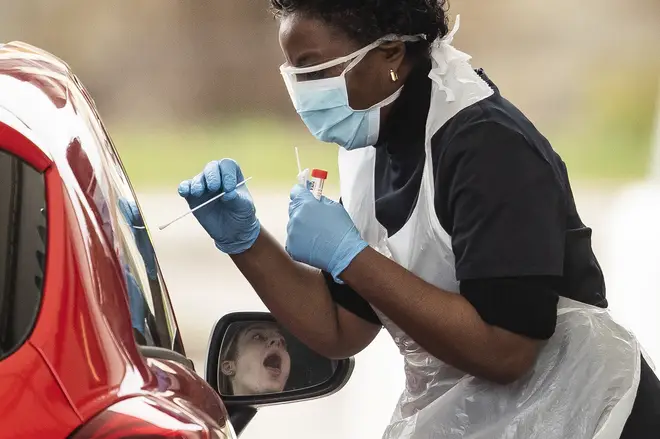
Mr Hancock said that Public Health England (PHE) did not have the capacity to scale during the pandemic, although their work on gene-sequencing the virus was excellent.
"It hadn't had the experience of scaling, this isn't a criticism of any individuals," he told the inquiry.
"It had a contact tracing system that was based on top quality, highly-trained experts. Whereas what we needed was much more like a call centre, Henry Ford-style, high-volume contact tracing system that we eventually built."
He added: "Public Health England did an absolutely superb job, especially on the scientific research and the best early example was developing the test in a extremely short period of time.
"And in its lab work and its analysis, it was first rate. Its genomics programme was superb. There was one point in the pandemic when we were sequencing half of the genomes of Covid in the world."
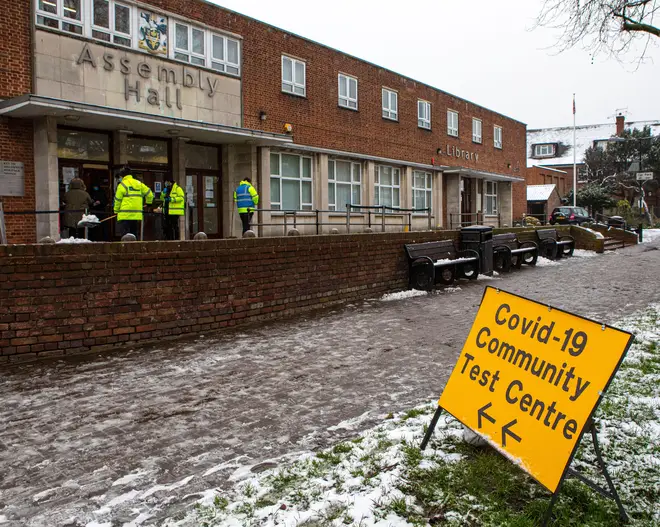
Mr Hancock also said that Public Health England (PHE) were not enthusiastic about engaging the public sector to help drive up testing capabilities, despite its relatively low capacity.
"It was deeply frustrating that there was an 'unenthusiasm', if I put it diplomatically, to engage private sector testing capacity, and I personally had to get involved in sorting that out," he told the inquiry.

Andrew Marr analyses Matt Hancock's Covid Inquiry performance so far...
The Covid inquiry was shown a message that ex-Cabinet secretary Mark Sedwill sent to Mr Hancock on May 1 2020 about the government reaching and beating the 100,000-per day testing target.
The message read: "Well done this evening. Creative counting and 122k!"
Leading the inquiry questioning, Hugo Keith KC asked Mr Hancock: "Do you accept or reject the suggestion of creative counting?"
Mr Hancock said: "I reject it, and on every different way you could possibly count these measures, we hit that target."
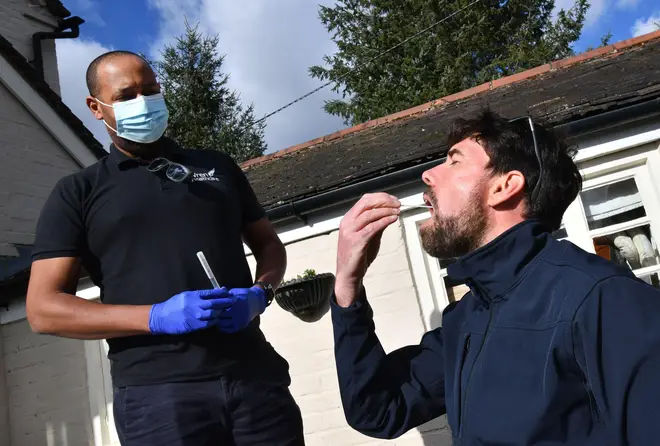
Mr Hancock said he didn't know about Eat Out to Help Out, a government backed-scheme to get people back into restaurants in summer 2020, until it was announced.
By this time it was a "done deal", he told the inquiry.
He called the scheme "unhelpful" but said that there had been "undue focus" on it.
Mr Hancock kept his concerns "out of the news" as he believes government is a "team effort", he told the inquiry, but he argued "very strongly" against extending it.
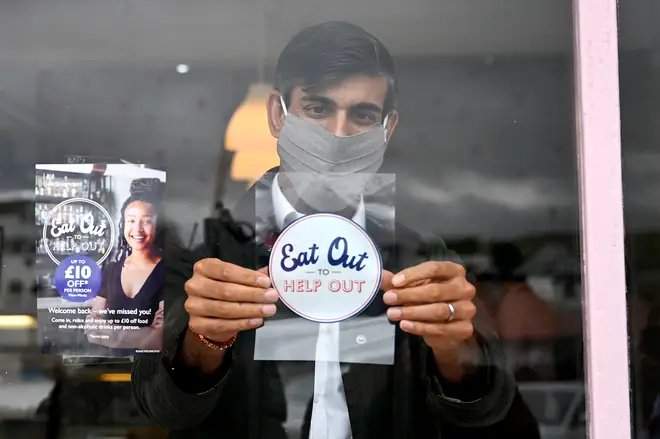
Mr Hancock said he was frustrated with changes in government's approach to Covid in summer 2020.
He told the inquiry: "Late August was frustrating because in July, the prime minister had been extremely concerned that there was a second wave, and it's reflected in the various communications and then came back from holiday and was much more concerned with not locking down and I found that a problem."
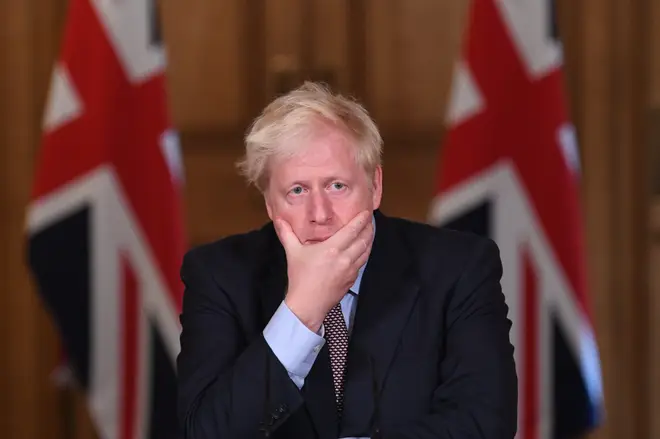
Mr Hancock told the inquiry that that there is a "spectacular imbalance" between how much the government spends on health security and physical defence.
"We spend £50 billion a year on physical defence and we spend less than half a billion pounds a year on UKHSA," he said.
"We spend less than 1% of our total budget for defence on health security, yet health security failings have killed more civilians than any other external threat since the Second World War and maybe even further back than that.
"And I think this is a spectacular imbalance in the amount of resources that we put into defence of this country against, say a terror threat, compared to a health threat."

Rishi Sunak denies saying it was ‘OK’ to ‘just let people die’ of Covid
Mr Hancock warned the UK may not have the capacity for mass testing if another pandemic arises.
He told the inquiry: "It's a vital, vital lesson for the future that we need a testing system ready to go, and I'm worried that that is not there right now in case there's a pandemic.
"What happens if one of these things, one of these diseases that we've read about in the last couple of weeks, the influenza in northern China becomes a pandemic? My question now to the Secretary of State (for health) would be how quickly can we get to 100,000 tests?
"How quickly are we going to get a vaccine? How quickly are we going to have 5,000 people in a call centre doing contact tracing?"
"He said the testing system set up in the pandemic had been understandably "stepped down" but added: "What you need is the ability very rapidly to put it back in place."